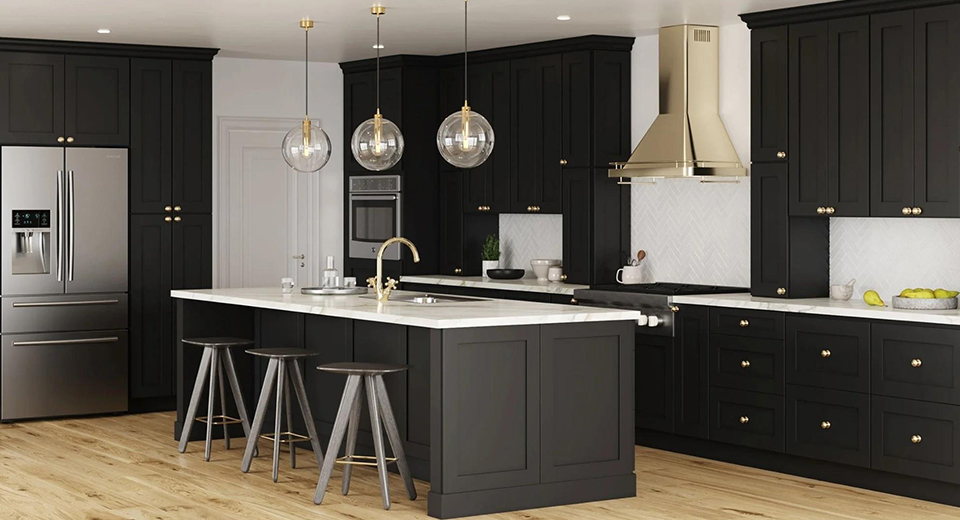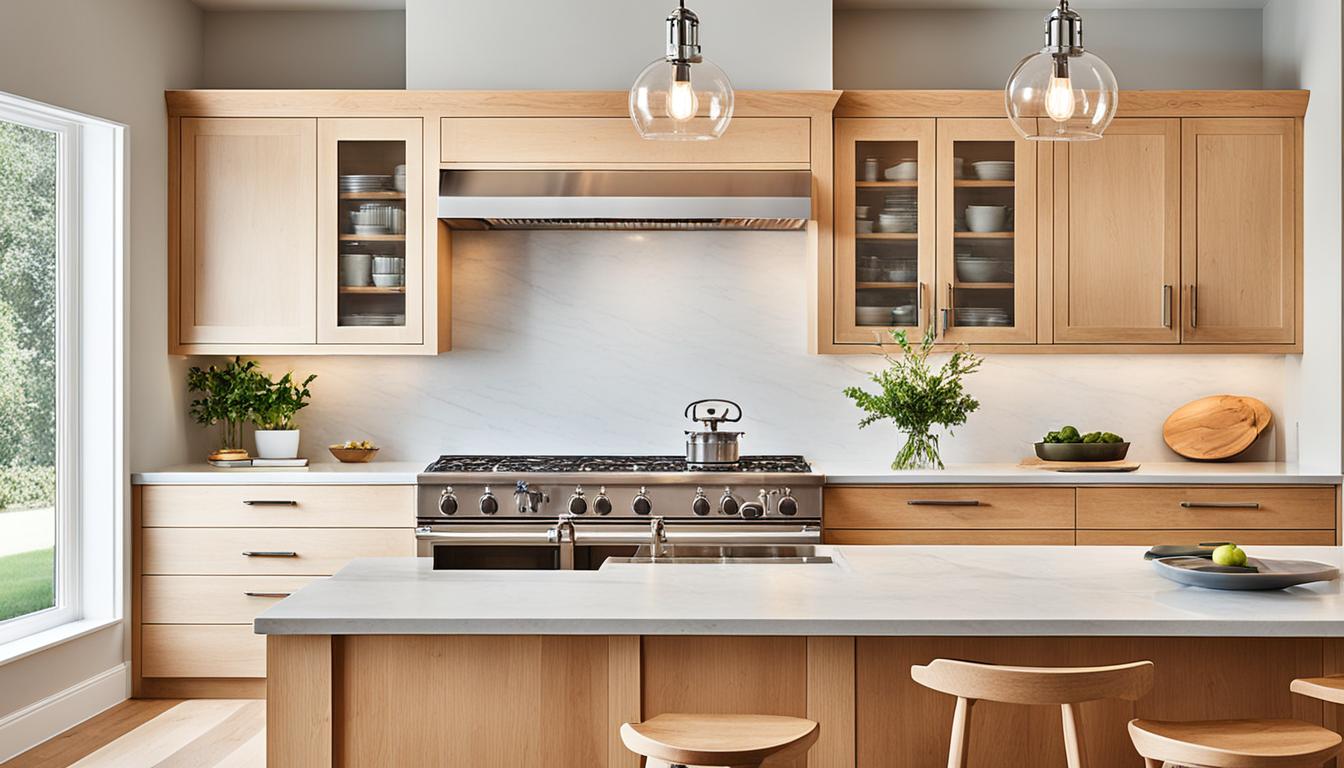Selecting the perfect countertop is a critical step in designing a kitchen or bathroom. Among the most popular choices are Corian solid surfaces and granite countertops. Both materials are excellent for different reasons, offering unique qualities that cater to various styles, budgets, and needs. This comprehensive guide compares Corian and granite countertops in terms of appearance, durability, maintenance, and cost, helping you make the best decision for your home.
What Are Corian and Granite Countertops?
Corian Solid Surface
Corian, a product by DuPont, is a man-made solid surface material crafted from a blend of acrylic resin and natural minerals. Known for its seamless design and extensive range of colors and patterns, Corian is versatile and customizable. Its non-porous surface makes it resistant to stains and easy to clean, making it ideal for modern and minimalist spaces.
Granite Countertops
Granite is a natural stone formed from molten rock and is prized for its one-of-a-kind patterns and exceptional durability. Each slab is unique, showcasing natural veining and color variations. Granite is synonymous with luxury and timeless elegance, adding a premium touch to any kitchen or bathroom.
Corian vs. Granite: A Detailed Comparison
1. Appearance and Design
- Corian:
- Offers a sleek, seamless look with no visible seams.
- Available in a wide range of colors and patterns, including options that mimic natural stone.
- Customizable for integrated sinks, backsplashes, and curved edges, making it a versatile choice for modern designs.
- Granite:
- Features natural beauty with unique veining and patterns in every slab.
- Available in earthy tones like white, black, gray, and beige, as well as exotic shades like blue and green.
- Adds warmth and character, perfect for classic, rustic, or high-end designs.
Verdict: Choose Corian for a modern, minimalist look or granite for a rich, natural aesthetic.
2. Durability
- Corian:
- Scratch-resistant but can be damaged by sharp objects or heat.
- Easy to repair; minor scratches can be buffed out with sandpaper or a repair kit.
- Not as heat-resistant as granite; hot pans can cause damage.
- Granite:
- Extremely durable and resistant to heat, scratches, and impacts.
- Requires sealing to prevent stains but holds up exceptionally well under heavy use.
- Ideal for busy kitchens or high-traffic areas.
Verdict: Granite is more durable, especially for kitchens that experience frequent use.
3. Maintenance
- Corian:
- Non-porous surface resists stains and bacteria, making it easy to clean with soap and water.
- Requires no sealing and minimal upkeep.
- Surface can lose its sheen over time but can be restored with polishing.
- Granite:
- Porous by nature, so it requires sealing every 1–2 years to maintain its stain resistance.
- Daily cleaning with mild soap and avoiding acidic cleaners are essential to protect the sealant.
- Difficult to repair if chipped or cracked.
Verdict: Corian is lower-maintenance, while granite needs periodic sealing and careful cleaning.
4. Heat and Scratch Resistance
- Corian:
- Can be scratched or scorched by direct heat, so use trivets or cutting boards to protect the surface.
- Minor scratches can be buffed out easily.
- Granite:
- Heat-resistant, making it safe for placing hot pots and pans directly on the surface.
- Highly scratch-resistant but can still be damaged by heavy impact or improper use.
Verdict: Granite is the better choice for durability in heat and scratch-prone areas.
5. Cost
- Corian:
- Costs typically range from $40 to $70 per square foot, depending on customization options.
- More affordable for large projects requiring seamless designs or integrated sinks.
- Granite:
- Prices vary widely, from $50 to $200 per square foot, depending on the rarity and quality of the slab.
- Installation, edging, and sealant can increase costs, making granite the more premium option.
Verdict: Corian is generally more budget-friendly, while granite offers a high-end look at a higher price.
6. Sustainability
- Corian:
- Manufactured using synthetic materials, though some brands now offer recycled content options.
- Long lifespan reduces the need for frequent replacements.
- Granite:
- Natural material that requires quarrying, which has an environmental impact.
- Can last a lifetime, reducing waste and contributing to sustainability.
Verdict: Granite is a more natural option, but Corian can be a sustainable choice when made from recycled materials.
Pros and Cons: Corian vs. Granite
Corian Solid Surface
Pros:
- Seamless, sleek appearance.
- Wide range of colors and customization options.
- Low maintenance with easy repairs.
Cons:
- Less durable against heat and scratches.
- Lacks the natural beauty of granite.
Granite Countertops
Pros:
- Unique, natural patterns add character and luxury.
- Highly durable and heat-resistant.
- Long-lasting with proper care.
Cons:
- Requires periodic sealing and careful maintenance.
- Higher cost, especially for exotic slabs.
FAQs: Corian vs. Granite
1. Which material is more durable?
Granite is more durable, offering superior resistance to heat, scratches, and impacts compared to Corian.
2. Can Corian mimic the look of granite?
Yes, Corian is available in patterns that replicate the look of natural stone while offering a seamless surface.
3. Is granite harder to maintain than Corian?
Granite requires more maintenance, such as sealing and specialized cleaning, while Corian is low-maintenance and easy to clean.
4. Which is better for a modern kitchen?
Corian’s seamless and customizable design makes it a better choice for modern or minimalist kitchens.
5. Are Corian and granite environmentally friendly?
Granite is natural but involves quarrying, while Corian can be eco-friendly if made with recycled materials.
Conclusion: Which Countertop Is Right for You?
The decision between Corian and granite depends on your specific needs and preferences:
- Choose Corian if you prioritize seamless design, low maintenance, and customization at an affordable price.
- Choose Granite if you value the natural beauty, durability, and timeless elegance of a premium countertop.
Both materials offer unique benefits, so weigh your priorities to choose the countertop that best fits your lifestyle and aesthetic vision.
Need help selecting your countertop? Contact our Shaker Cabinets team for expert advice and a wide range of options to suit your project!










